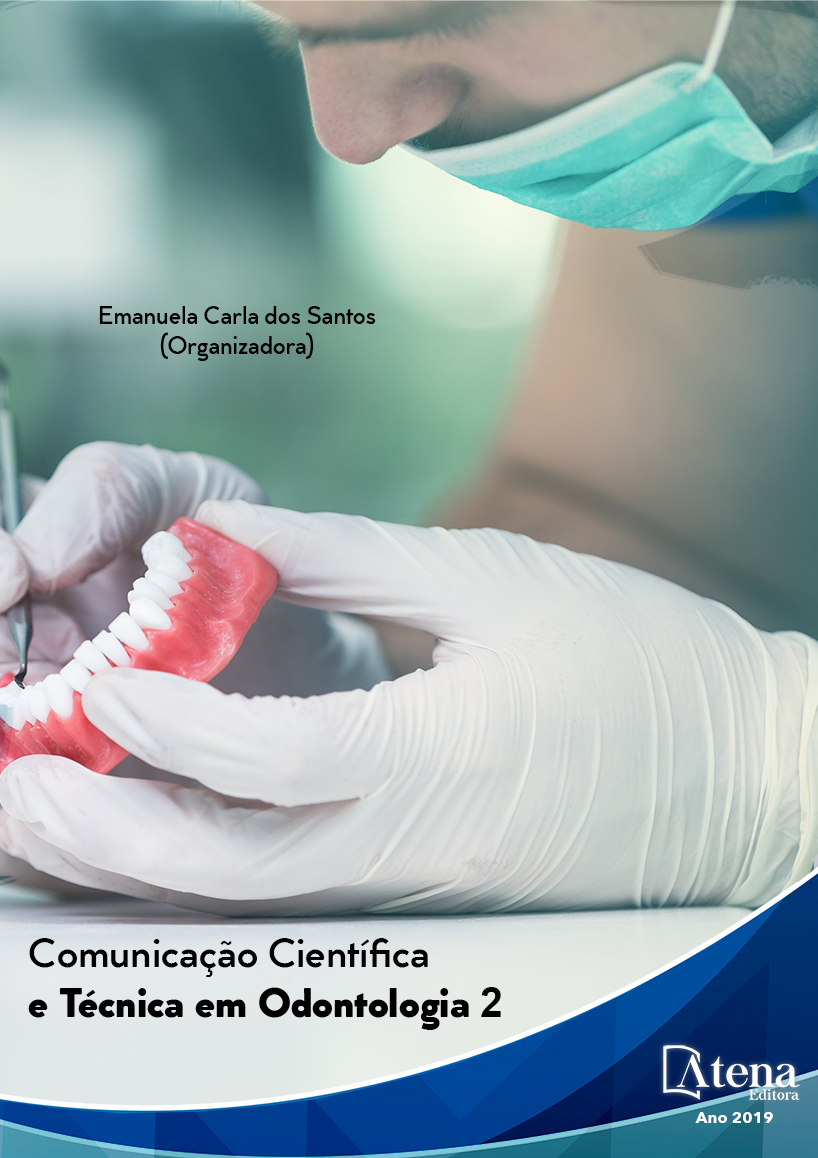
TRATAMENTO RESTAURADOR ATRAUMÁTICO EM CRIANÇAS RESIDENTES EM UM DISTRITO DA AMAZONIA LEGAL
O Tratamento Restaurador
Atraumático, conhecido pela sigla em Inglês
ART (atraumatic restaurative treatment), é
uma técnica de atendimento que se baseia
na escavação e remoção da dentina infectada
das cavidades, através da utilização de
instrumentos manuais e restauração com um
material adesivo, especificamente o Cimento de
Ionômero de Vidro. Este trabalho proporcionou
assistência Odontológica no Distrito do
Riozinho, localizado na Amazônia Legal. Foram
examinadas 40 crianças com idade entre 5
e 6 anos, de ambos gêneros, regularmente
matriculadas na E. E. E. F. Nossa Senhora do
Carmo. Foram selecionados trinta e um molares
decíduos superiores e inferiores com presença
de lesões de cárie ativa na superfície oclusal,
registrado em ficha individual. Os dentes
receberam restaurações atraumáticas (ARTs)
de acordo com a metodologia empregada e
foram avaliados após três meses. Concluímos
por meio deste estudo que o Tratamento
Restaurador Atraumático é uma opção válida
para comunidades com difícil acesso ao
tratamento odontológico convencional, valendo
reforçar a importância da associação das
ações educativas e preventivas na prevenção e
controle da cárie dentária.
TRATAMENTO RESTAURADOR ATRAUMÁTICO EM CRIANÇAS RESIDENTES EM UM DISTRITO DA AMAZONIA LEGAL
-
DOI: 10.22533/at.ed.26519290325
-
Palavras-chave: Cárie dentária. ART. Cimento de Ionômero de Vidro.
-
Keywords: Dental cavity. ART. Glass ionone cement.
-
Abstract:
The atraumatic Restorative
Treatment, known by its acronym in English ART(
atraumatic restorative treatment) is a technical
attend, which is based on the excavation and
removal of infected dentin cavities using hand
instruments and restoring with an adhesive
specifically ionone cement glass. This work
provided dental assistance in the District of
Riozinho, located in the Legal Amazon. A total
of 40 children, aged between 5 and 6 years,
of both genders, regularly enrolled in E. E. F.
Our Lady of Carmel. Thirty-one upper and lower
deciduous molars were selected with presence
of active carious lesions on the occlusal surface,
recorded in individual files. The teeth received
atraumatic restorations (ARTs) according to
the methodology used and were evaluated
after three months. We conclude by means of
this study that the Atraumatic Restorative Treatment is a valid option for communities
with difficult access to conventional dental treatment, and it is worth emphasizing the
importance of the association of educational and preventive actions in the prevention
and control of dental caries.
-
Número de páginas: 15
- Rhafaela Rocha Cavasin
- Kátia Cristina Salvi de Abreu Lopes


